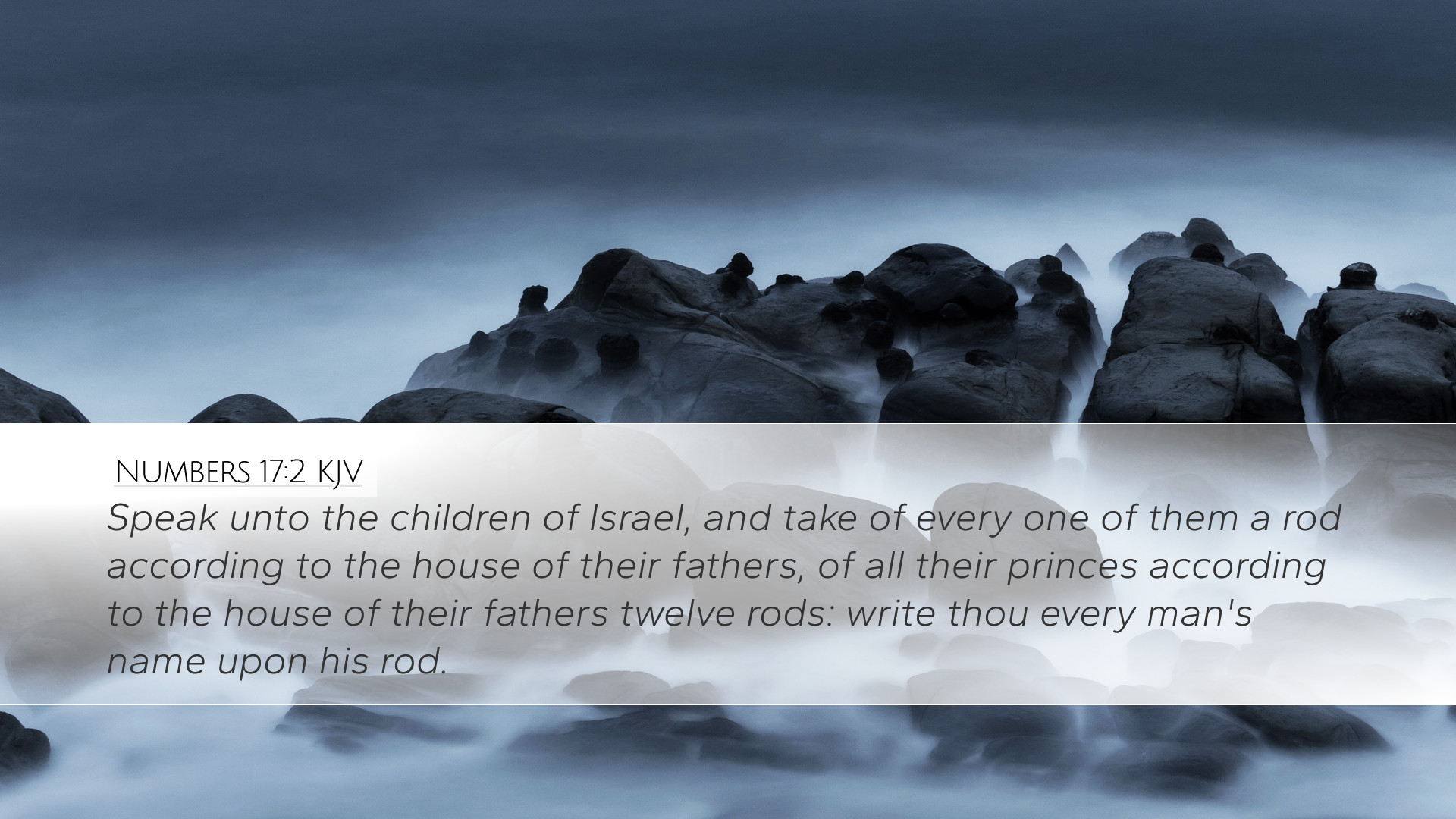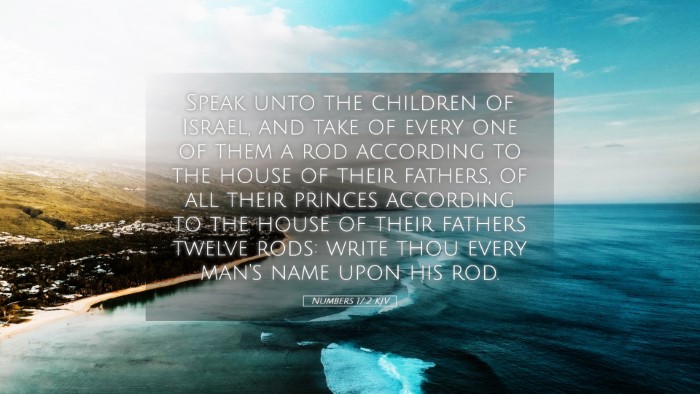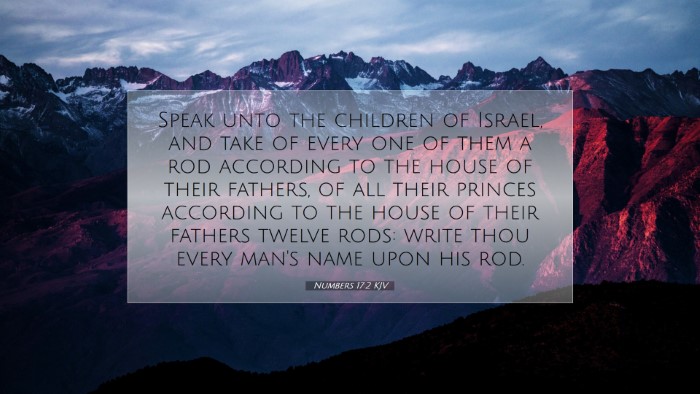Commentary on Numbers 17:2
Numbers 17:2 states: "Speak unto the children of Israel, and take of every one of them a rod according to the house of their fathers, of all their princes according to the house of their fathers twelve rods: write thou every man’s name upon his rod."
Introduction
This pivotal verse in the Book of Numbers captures God's divine method of confirming His chosen leaders among the Israelites. The context reveals the contention surrounding the authority of Moses and Aaron, prompting God to illustrate His choice through a miraculous sign involving rods—an object of authority within the ancient Near Eastern context.
Historical Context
The setting of this verse occurs amidst a series of challenges to Moses and Aaron's leadership (Numbers 16). Following the rebellion of Korah, which resulted in severe consequences for those who opposed God's chosen leadership, the assembly still needed clarity on God's appointed leaders.
According to Matthew Henry, this narrative serves as a clear demonstration of God’s sovereignty over His chosen people. The rods symbolize not just objects of authority but also represent the tribes of Israel and their respective leaders, thus indicating God’s concern for order and structure within His community.
The Significance of the Rods
In biblical symbolism, a rod often represents authority, guidance, and pastoral care. The act of selecting rods from each tribe signifies that God Himself is involved in choosing His leaders. Albert Barnes remarks that this selection process underscores God's desire for unity among the tribes under divinely appointed leadership.
This selection is not arbitrary; it is a deliberate, structured means to reaffirm God’s authority. Each rod, inscribed with the name of its leader, signifies individual representation of each tribe while collectively affirming God’s governance through His chosen mediator, Aaron.
Theological Implications
This verse introduces several theological themes:
- Divine Authority: God’s command to choose rods illustrates the concept that true authority originates from Him.
- Representation: Each rod signifies not just a leader but the entire tribe they represent, emphasizing the communal aspect of God's design.
- Challenge and Response: The prevailing challenges faced by Moses and Aaron necessitate a divine response to assert God’s selection clearly.
As Adam Clarke elaborates, this choice of rods serves a dual purpose: it not only affirms God's authority but also guides the community towards recognition of rightful leadership, fostering unity and obedience.
Practical Applications
For pastors and church leaders, Numbers 17:2 provides profound insights on leadership and authority:
- Humility in Leadership: Acknowledging that leadership is an appointment by God encourages humility and reliance on divine guidance.
- Unity in Diversity: Just as each tribe was represented, contemporary leadership can embrace diversity within unity, valuing each member's contribution.
- Discernment: Leaders are called to discern the difference between divine authority and personal ambition in their roles.
Conclusion
Numbers 17:2 serves as a profound reminder of God’s sovereignty in leadership. The divine selection process promotes a culture of respect for authority that is ordained by God. In reflecting on this passage, pastors, theologians, and scholars are encouraged to consider the weight of their leadership role and the significance it holds in their community's faith journey.
In summary, the rods symbolize a divine mandate for order, unity, and respect for God-ordained leadership. This passage invites earnest reflection on the nature of authority and the call for leaders to seek God’s wisdom in guiding His people.


